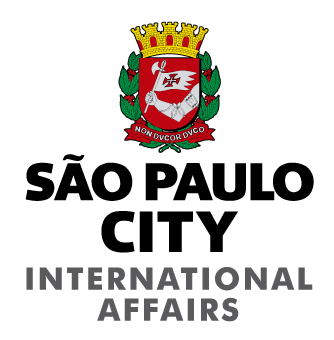United Nations Office for Counter-Terrorism (UNOCT)
Description
About
The United Nations Office of Counter-Terrorism (UNOCT) was established on 15 June 2017 through the adoption of UN General Assembly Resolution. Mr. Vladimir Voronkov was appointed as its first Under-Secretary-General. The creation of the Office is considered the first major institutional reform undertaken by the UN Secretary-General António Guterres following his report on the Capability of the United Nations to assist the Member States in implementing the United Nations Global Counter-Terrorism Strategy.
UNCCT was established in 2011 to promote international counter-terrorism cooperation and support Member States in the implementation of the Global Counter-Terrorism Strategy through a voluntary contribution of the Government of Saudi Arabia. The General Assembly welcomed the establishment and encouraged the Member States to collaborate with the Centre. In 2014, the Kingdom of Saudi Arabia donated an additional USD 100 million to UNCCT. Since its establishment, more than 30 countries have provided financial support to UNCCT and its projects. With the establishment of UNOCT on 15 June 2017, UNCCT was transferred, along with its staff and resources to this new Office.
UNOCT has five functions:
- Provide leadership on the GA counter-terrorism mandates entrusted to the Secretary-General from across the UN system;
- Enhance coordination and coherence across the 38 Global Counter-Terrorism Compact entities to ensure the balanced implementation of the four pillars of the UN Global CT Strategy;
- Strengthen delivery of UN counter-terrorism capacity-building assistance to the Member States;
- Improve visibility, advocacy and resource mobilization for UN counter-terrorism efforts;
- Ensure that due priority is given to counterterrorism across the UN system and that the important work on preventing violent extremism is firmly rooted in the Strategy
UN Global Counter-Terrorism Strategy
The UN Global Counter-Terrorism Strategy is a unique global instrument to enhance national, regional and international efforts to counter-terrorism. Through its adoption by consensus in 2006, all UN Member States agreed for the first time to a common strategic and operational approach to fighting terrorism.
The Strategy does not only send a clear message that terrorism is unacceptable in all its forms and manifestations but it also resolves to take practical steps, individually and collectively, to prevent and combat terrorism. Those practical steps include a wide array of measures ranging from strengthening state capacity to counter terrorist threats to better coordinating UN System’s counter-terrorism activities.
UNOCT and South-South Cooperation:
The High-level United Nations Conference on South-South Cooperation, held in Nairobi in December 2009, defines South-South Cooperation as a “partnership among equals based on solidarity".
The benefits of South-South cooperation in terms of peer learning from countries with similar challenges have been noted during exchanges at training workshops organized by UNCCT and during engagements with Permanent Missions. Many Member States have also offered to share their knowledge and experiences in counter-terrorism in a sustained manner, including by offering training courses on specific counter-terrorism challenges, providing financial and monetary cooperation as well as in-kind contributions
UNCCT promotes South-South Cooperation (SSC) in countering terrorism and preventing violent extremism (CT/PVE) as a dynamic modality of international cooperation especially since its scale, scope and number of actors has expanded through its groundbreaking global project entitled “Enhancing south-south exchange of expertise in countering terrorism and preventing violent extremism, as and when conducive to terrorism (CT/PVE) between experts from Africa, Asia, the Middle East, Latin America and the Caribbean.” The Project is funded through a generous contribution from the UN Peace and Development Trust Fund, established with support from the Government of China.
Building on this project UNCCT facilitates exchanges of expertise between countries from the global South, which innovative and successful southern-generated policies and initiatives respond to the specific challenges faced by developing countries in tackling terrorism and the conditions conducive to its spread. The project will also help build new partnerships, strengthen institutional and technical capacities, respond to the specific CT/PVE challenges of developing countries and enhance cooperation.
Beyond the implementation of the project, UNOCT/UNCCT has developed a programme to facilitate the mainstreaming of South-South Cooperation in OCT and Global Compact Entities activities and policies.
Online Network of Southern Experts:
Based on the priorities of the UNOCT, an online network of Southern experts and stakeholders is created using the knowledge-brokering platform, South-South Galaxy, supported by the UN Office for South-South Cooperation. This platform provides a virtual space for voluntary knowledge exchange and learning to promote cooperation on CT/PVE and opportunities for continued dialogue among countries from the global South:
SECTOR
Peace and Development, Counter-Terrorism & Prevention of Violent Extremism
Country
United States of America
SDG
16 - Peace and Justice Strong Institutions
Organization Type
Multilateral Organization
Similar Organizations





